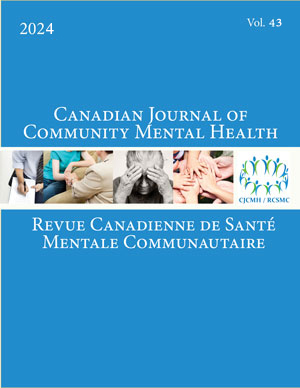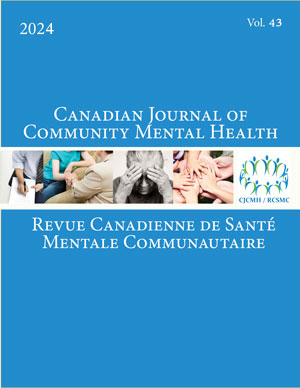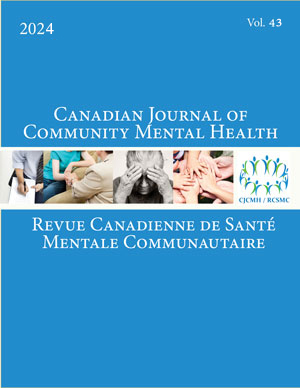Volume 5 • Number 2 • September 1986
OPEN ACCESS
While purporting to be benign, compassionate, and helpful, psychiatry functions as a social regulator. Its unrecognized inter-relationship with the social system allows psychiatry to participate in women's oppression, locating the problem within the individual woman and obscuring the invidious effects of social structures. Psychiatric theories can reflect and reinforce longstanding beliefs about women's status and role, contribute to her devalued status, blame her for her difficulties, minimize violence against her, and suggest that her behaviour should be shaped so that she can conform to the traditional role. A feminist perspective provides a different view and alternative treatment approaches.
OPEN ACCESS
In this study, the conventionally accepted view of sexual violence against women as manifested by traditional therapy is contrasted with the feminist perspective represented by feminist therapy and feminist self-help groups for victims of sexual assault. The focus of the research is on the ways in which consumers of different therapies are taught socially to reconstruct their sexual assault experiences. On the basis of intensive interviews with victims of sexual assault or incest who have subsequently experienced therapy, the reconstructions of the assault encouraged by conventional therapeutic approaches are found to differ sharply from those developed in feminist modalities. The conclusion is that conventional therapies for victim of sexual assault tend to perpetuate the existing belief structure about rape and incest by isolating and blaming the victim. In contrast, feminist counselling and feminist self-help groups remove the woman's false sense of guilt, validate the woman's experience with sexual violence, and enable the victim to develop an understanding of the social structural context in which sexual assault occurs.
OPEN ACCESS
This paper explores the social context of single mothers in Canada. Areas of concern in the literature include role strain (both at home and at work), poverty, employment, and the inaccessibility of child care. Past interventions for single mothers at the governmental, organizational, and individual levels are discussed. These include strategies to reduce the numbers of single-parent families living below the poverty line, to ensure greater flexibility for single mothers in the workforce, and to improve the overall self-image of women through further education, assertiveness training, and confidence building. Finally, the authors make recommendations for policy changes and future interventions, proposing a strategy which combines elements of the Employment Resource Program, an innovative model used in a mid-size Ontario city, and the former Vancouver Opportunities program. The model employs self-help techniques, career counselling and job training, child care and financial assistance.
OPEN ACCESS
Women today are involved in multiple roles. While some research shows that multiple roles are health enhancing, other research findings indicate that particular role combinations create major stress and result in poor health. The present study was designed to examine the effect of particular role combinations on women's health by comparing the health of employed and non-employed career women with preschool children. A convenience sample of fifty career women was utilized and a multi-item questionnaire was self-administered. Twenty of the participants were interviewed. The purpose of this paper is to report on the findings related to women's perceived stressors and coping responses. Findings indicate that the type of stressor experienced by these two groups is different and as a result they require different kinds of support to enable them to cope effectively with their chosen roles.
OPEN ACCESS
This paper examines family practice theory and family policy from a feminist perspective. The conceptual barriers presented by existing language are identified. The ideology which underlies power relationships in families is examined, and the toll exerted by “labours of love” on women's mental health outlined. Strategies for work with families which incorporate a feminist perspective are presented.
OPEN ACCESS
The pervasiveness of incest in our culture is now being recognized. yet covert incest is rarely discussed or focused on as having harmful effects on its victims. This paper examines the concept of covert incest from a feminist theoretical perspective and discusses several of its forms, namely father-daughter, mother-daughter, and therapist-client covert incest. Issues related to healing are briefly presented.
OPEN ACCESS
This study systematically evaluated the effectiveness of a treatment package developed for women who had been sexually victimized in childhood or adolescence and who were experiencing sexual dysfunctions in adulthood that they attributed to these earlier experiences. The treatment package consisted of three components: (a) relaxation training, (b) cognitive restructuring of the women's erroneous beliefs about sexual victimization, and (c) treatment of the sexual dysfunctions. A multiple-baseline across-subjects design was utilized (Hersen & Barlow, 1976). Participants included five women and their partners who voluntarily sought therapy from the Psychological Services Centre, University of Manitoba. Repeated measures were collected at specific intervals through the treatment and at follow-up using interview data and several standardized questionnaires. The results indicated the treatment package was successful in assisting the women in the study to achieve the first two goals of therapy: (a) to modify the woman's erroneous beliefs about sexual victimization, particularly those beliefs related to psychosexual functioning, and (b) to increase the woman's sexual functioning and sexual satisfaction. The treatment package intervention had only limited success in assisting the couple to achieve sexual satisfaction. Reasons for this may relate to (a) the women's reported increased sense of self-worth and self-confidence following the cognitive restructuring, (b) subsequent demands by the women for a more egalitarian sexual relationship, and (c) the incorrect assumption that partners were prepared to assist the women in achieving overall sexual satisfaction.
OPEN ACCESS
This article presents a description and consumer report of an eight-week life skills training program for single-parent women. The results of the study, although based on a post-test only self-report design, indicate that the program participants found the course helpful. The feedback indicates that for low-income women, skills in self-esteem, parenting, and assertiveness were improved. There was slightly less, but still significant progress reported in gaining and maintaining skills in the areas of stress management and problem-solving skills. Single-parent mobility and financial stress are consistently mentioned as worries or serious concerns. The report concludes that while the support and skill-building functions of life skills programs are encouraging, the major problems facing women single parents must be addressed as part of a broader public issue.










